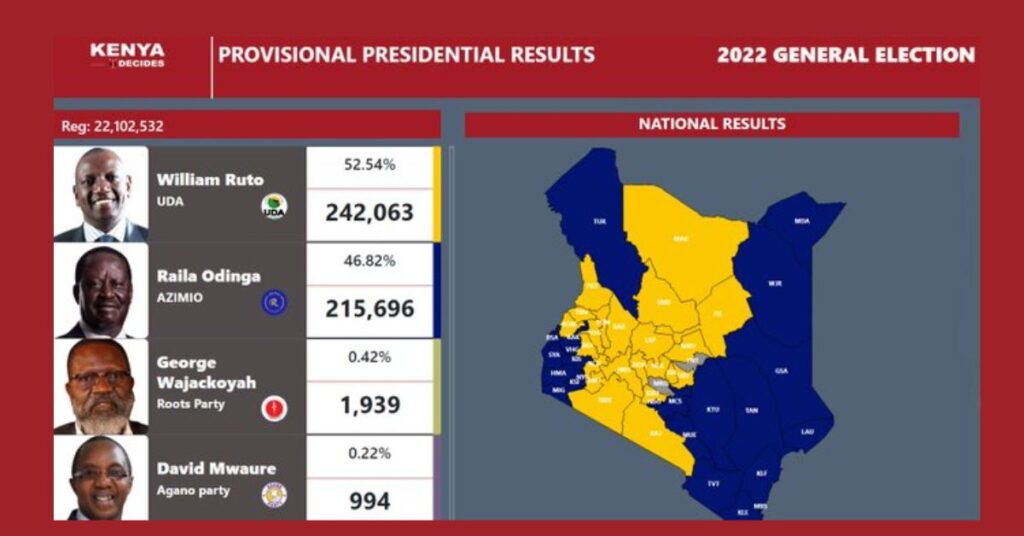Govt Pushes Bill to Ban Live Presidential Results Coverage
The Kenyan Senate is considering a controversial bill that seeks to abolish the mandatory live streaming of presidential election results by the Independent Electoral and Boundaries Commission (IEBC).
Sponsored by Kericho Senator Aaron Cheruiyot and Kilifi Senator Stewart Madzayo, the proposal stems from the recommendations of the National Dialogue Committee (NADCO), formed to address political tensions following anti-government protests.
The proposed amendment aims to repeal Section 39 of the Elections Act, which requires the IEBC to broadcast presidential election results live for public consumption.
The bill argues that live streaming is primarily informational and does not constitute the official basis for declaring results. Instead, it proposes that results will continue to be posted online but must be physically delivered for final declarations.

“This mechanism ensures that while the public can cross-reference electronically transmitted results with the declared outcomes, the integrity of the election process remains intact,” stated Cheruiyot.
The bill also asserts that failure to transmit or publish results electronically will not invalidate the final tally. However, it mandates that polling station results remain final and that presidential results be electronically transmitted and declared before those of other elective posts.
If enacted, Kenyans will rely on digital images of Forms 3A uploaded to the IEBC portal to calculate totals independently while awaiting the official announcement. Critics, however, argue that removing live broadcasts could hinder transparency.
“Real-time election updates are crucial for maintaining public trust. This proposal risks eroding confidence in the electoral process,” warned activist Anne Njenga.
Supporters of the bill argue that live broadcasts have previously fueled misinformation and unnecessary tension. “The priority is to focus on accuracy rather than sensationalism,” noted Madzayo.
As the Senate debates this divisive legislation, it has ignited widespread discussions on balancing transparency with safeguarding public order during election periods.
Whether this amendment will gain traction remains to be seen, but its implications on future electoral practices could be profound.

In Other News: Ranking Of Top 10 Best Performing Governors Revealed By Politrack Africa
Govt Pushes Bill to Ban Live Presidential Results Coverage

